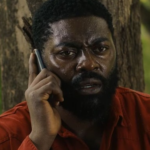The night her father died was the last good day of Patience Ukange’s childhood.
Until then, she had known the warmth of two lovely parents. But his sudden death fractured the gentle rhythm of her early life.
Sent to live with her grandmother in a rural village, Ukange experienced the lonely limitations of life in Nigeria’s hinterlands. Although her basic needs were met, a deep ache lingered. She would become silent whenever classmates spoke lovingly of their fathers.
After her grandmother eventually passed away, Ukange moved to Abuja to live with her mother. A few years later, as she was rounding off her WAEC exams, tragedy struck again. Her mother, vibrant and seemingly healthy, died unexpectedly—a mystery that has not stopped baffling Ukange.
Sometimes, she recalls, she woke up from bed, half-expecting to find her mother seated by her.
Without reliable support from family relations, Ukange grappled with the nagging thought of how to eke out a living in her gritty neighbourhood in Abuja’s ghettos. She was only sixteen.
Patience Ukange’s work as a community leader and climate advocate today draws heavily from her hardscrabble childhood. Her nonprofit, The Confident Woman Africa Initiative (TCW), caters to vulnerable girls and women within Nigeria and across the continent.
She grew up in a place where girls went astray, men prowled, and dreams often crumbled before they could grow. But through faith and sheer discipline, she proved the world wrong.
In the aftermath of her mother’s passing, Ukange started a grocery store with leftover savings. This allowed her to save for her JAMB registration and eventually her higher education.
At first, she enrolled in a polytechnic but later secured admission to the Federal University of Technology, Minna, where she studied Surveying and Geoinformatics. Ukange shunted between both schools, sitting university exams in the morning and dashing to the polytechnic for afternoon lectures.
She often laughs at that phase of her life. “I’m like, ‘Hey, who are you like? What were you thinking?”
Yet others saw potential in Ukange’s sheer doggedness. One of her lecturers, having heard of her dual studentship, offered to become her academic and spiritual mentor, even covering part of her tuition fees. Their bond remains unbroken across borders and years.
Since 2023, Ukange has worked to cultivate self-esteem, leadership, and practical skills among women and girls in Nigeria’s rural communities and internally displaced persons (IDP) camps. Her organisation, the Confident Woman Africa Initiative (TCW), aims to swap stereotypes and victimhood with a strong self-belief.
“I never saw myself as a victim,” she insists. “There is nothing that if I put my heart into, I won’t be able to do.”
TCW has led training sessions across several African countries, including Kenya and Ghana, reaching over 3,000 women. Participants are not only groomed in financial literacy and career development but also exposed to vocational skills like baking, soap-making, and cosmetology.
“I discovered about 6 areas where, if a lady is able to give herself in, she would actually maintain this portfolio of a woman… and one of them is the area of career. Physical, mental health is the second area, character is the third area, spirituality is the 4th area, financial intelligence is the 5th area, and then the last area is relationships. And then in this relationship, we talk about relationships with others and relationships with your spouse.”
Ukange’s work with displaced persons paints a stark picture of Nigeria’s humanitarian challenges. As of 2024, Nigeria hosts more than 3.4 million internally displaced persons, according to the International Organisation for Migration (IOM). The majority of IDPs, over 56%, are women and children under 18. Many live in dire conditions in informal camps, with limited access to education, healthcare, or sustainable livelihoods.
In the Northeastand parts of the Middle Belt like Benue, natural disasters, conflicts and attacks have forced countless families into IDP camps. A good number of displaced households have no steady income, and girls in these camps are disproportionately at risk of child marriage, sexual violence, and exploitation.
She has visited and worked in numerous camps, including New Kuchingoro IDP Camp Abuja, Wassa IDP Camp Abuja, Ichwa IDP Camp Benue State, and Lugbe IDP Camp Abuja. In some camps, she found the mindset of entitlement a significant obstacle.
“Here in Abuja, they are close to the city, and some feel like they shouldn’t work themselves too hard,” she says. “They’d rather stay in the camps and wait for people to bring them things.” She added that some reject empowerment offers that come with no lunch pack.
Criticism, however, has not spared her. The name “The Confident Woman” has sparked assumptions that she is fomenting rebellion among women, teaching them to be disrespectful or shun marriage.
Some even accuse her of fuelling the so-called “boss lady” culture, where independence turns into arrogance. “Sadly, some people feel I’m teaching young ladies to be rude, not to marry men, not to submit,” she says. “Unfortunately, these persons have never come into any of our conversations to know what we do.”
She counters these narratives patiently, determined to show through her own life and work that true confidence is rooted in balance, character, and wisdom.
Patience has found strength and solidarity through networks across Africa. “We have partnered with both local and international organisations across Africa: Tech Herfrica, Girls on Tech Nigeria, Centre for Teens, YALI Network Abuja, Empower Her Kenya, Keep Her in School Ghana, and the African Women Economic Justice and Political Equality Council in South Africa,” she says.
These partnerships have allowed her to reach more women despite funding challenges and limited manpower.
Yet even with glowing success stories, the work is not easy. She grapples with financial constraints that prevent her from scaling interventions to match the enormous need. Many girls in IDP camps remain reluctant to commit to education or training, sometimes prioritising handouts over self-reliance.
A recent disappointment stings especially sharply: she secured places for several girls from IDP camps in a prestigious Mastercard Foundation scholarship program, only to find none were willing to register for JAMB to pursue university admission.
“As much as we have been taking these girls through sessions on self-development and confidence, they still have some elements of self-doubt, dependency mindset, and mediocrity,” she explains. “They don’t believe anything good can come out of them. They feel they don’t have to stretch so much for their needs because they have been displaced, they believe they should be taken care of by the government or NGOs. They don’t believe school has any benefit for them.”
She manages a catering business in Abuja, often working late nights to fund her outreach.
She credits her faith, particularly the teachings by Pastor Joshua Selman, for keeping her going through her darkest hours.
Every tragedy has become a stepping stone; every wound has birthed a new purpose. When she speaks of the future, Ukange envisions young women stepping into the world as balanced beings: spiritually grounded, professionally accomplished, financially literate, emotionally healthy, and wise in relationships.
And while she insists that her journey is still unfolding, there’s no mistaking the quiet revolution she has already begun.
The tragic deaths of Patience Ukange's parents marked a pivotal point in her life, leading her from a childhood of warmth to a life of resilience and self-reliance. Following the loss of her father and later her mother, Ukange found herself in Abuja, navigating the challenges of survival at a young age. Her determination propelled her to start a grocery store to fund her education, balancing studies between a polytechnic and a university. Despite obstacles, she was supported by mentors and eventually graduated, leveraging her experiences and education to establish The Confident Woman Africa Initiative (TCW).
Ukange's work with TCW focuses on empowering vulnerable girls and women in Nigeria and across Africa, providing training in financial literacy, vocational skills, and leadership. Her initiative has reached thousands, addressing the specific needs of women in rural communities and IDP camps. Despite facing criticism and financial challenges, Ukange remains steadfast in her mission to foster self-esteem and instill a sense of agency in the women she supports. Partnerships with international and local organizations help amplify her impact even as she navigates the reluctance of some girls to prioritize education over immediate handouts.
Through personal faith and dedication, Ukange envisions a future where young women embody spiritual grounding, professional success, emotional health, and wisdom in relationships. Her journey is not just a testament to her resilience but also a quiet revolution in transforming victimhood into strength and potential, one woman at a time.






